|
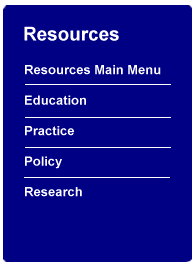
|
9/11 Plus Ten:
New York City in the Aftermath of September 11th
Monday, September 19th, 2011, Noon to 5:30pm
The Graduate Center, City University of New York
365 Fifth Ave @ 34th Street, New York, NY 10016
Website: http://tinyurl.com/911plus10
Program: Click here.

The first annual UnSpoken human rights forum will take place this year from Oct. 13-15. It combines the arts with a scholarly conference. This year, the conference theme is the role of the arts and culture in resettlement of refugees and other immigrant populations and, as the forwarded announcement indicates, places particular emphasis on film and features films that look at human rights--surely a necessary underpinning of real peace as opposed to absence of war.
Sponsoring partners include the Mohawk Valley Resource Center for Refugees, United Nations High Commissioner for Refugees, Lutheran Immigration and Refugee Service, New York State's Bureau of Refugee and Immigrant Assistance, Colgate University's Upstate Institute and its Peace and Conflict Studies, Hamilton College's Arthur Levitt Institute of Public Affairs, and Utica College. For extensive information about UnSpoken, including the program and registration materials, see www.iamunspoken.com.
As a member of Division 48, this event ties together many threads of my career and life experience. I am the daughter of an immigrant who, as a social worker in the 1940s and 50s resettled European concentration camp survivors in the U.S. As such, refugees and other immigrants have always been a part of my life. In my 40's, with a doctorate in social psychology, I began teaching at Utica College and became Prof. Emerita of Psychology at the end of 2005. In addition to psychology courses, I taught Culture and Personality for the Anthropology/Sociology Department and made a point of incorporating cultural issues in my social psychology and adolescent development courses. In my research, I studied cross cultural adolescent development and the mental health systems of Kenya and two states in the US. In the mid-1990s, since I was also involved in civil liberties work, my colleague Ted Orlin, a human rights lawyer, author, and consultant (see the attachment), arranged for me to visit Albania to consult on human rights of mental patients. At that time, I met the headlining film maker for UnSpoken, Kujtim Cashku. I have been a volunteer in various roles at the Mohawk Valley Resource Center for Refugees since the mid-1990s and, almost a year ago, became a part-time staff member, working as a client advocate developing a means of assessing client satisfaction. In this way, I actively promote peace in my highly diverse local community.
Pauline (Polly) Ginsberg, PhD
Professor Emerita of Psychology, Utica College
Client Advocate, Mohawk Valley Resource Center for Refugees

Recent Research Findings by the Center for Research on Peace Education
Gavriel Salomon - Click for bio.
July, 2009
CERPE's Mission The mission of the Center for Research on Peace Education (CERPE) is to advance the field of peace, reconciliation and partnership education through conceptual development and empirical research. CERPE is supported by an initial grant by the Stronach family in Canada and by grants from the Spencer Foundation, United States Institute of Peace, the Slifka Foundation, the Fohs Foundation, and private donations. http://cerpe.haifa.ac.il
A SUMMARY OF CORANN OKORODUDU'S U.N. WORK
For approximately 19 years, I have focused my professional commitment at the United Nations on promoting global policies and practices that promote human rights and social justice as foundational attributes of peaceful and democratic community. At the United Nations I have served as Main Non-Governmental Organization Representative for the Society for the Psychological Study of Social Issues (SPSSI) and the American Psychological Association (APA). I was a major contributor to APA's application for accreditation at the United Nations and helped to recruit a diverse team of psychologists to begin the process of integrating psychological and social science perspectives into work to advance various global human rights and social justice standards.
My human rights and social justice work at the UN involves working with other NGO representatives and committees, UN personnel, and governments on education, advocacy, and the monitoring of the implementation of international human rights standards and consensus documents of UN world conferences focused on the following aspects of the UN's agenda: (1) The elimination of all forms of racism, racial discrimination, and xenophobia and the development of a Permanent Memorial to the Victims of Slavery and the Trans-Atlantic Slave Trade; (2) the elimination of all forms of discrimination against women and girls, especially violence against them, and promotion of the fulfillment of their human rights; (3) the understanding and promotion of the fulfillment of children's rights to survival, safety, development and social participation, including eliminating violence against all children in the family, the community, various institutional settings, and in the broader society; (4) the promotion of the human rights of migrants and refugees; and (5) psychosocial and mental health as human rights factors that promote peace and development. I have also co-facilitated arrangements for dialogue between leading psychologists and representatives of the UN at APA at the Society for the Psychological Study of Social Issues (SPSSI) conventions, and at UN Headquarters in New York on these issues.
US Peace Memorial Foundation (www.uspeacememorial.org )
In 2005, Michael D. Knox, Ph.D. founded the US Peace Memorial Foundation.
 In 2007, he was awarded the Marsella Prize for the Psychology of Peace and Social Justice, recognizing him "for more than 4 decades of outstanding contributions to peace and humanitarian assistance." Dr. Knox is a Distinguished Professor Emeritus at the University of South Florida and his biography is included in the latest editions of Who's Who in the World and Who's Who in America. For more information go to www.uspeacememorial.org/Knox.htm. In 2007, he was awarded the Marsella Prize for the Psychology of Peace and Social Justice, recognizing him "for more than 4 decades of outstanding contributions to peace and humanitarian assistance." Dr. Knox is a Distinguished Professor Emeritus at the University of South Florida and his biography is included in the latest editions of Who's Who in the World and Who's Who in America. For more information go to www.uspeacememorial.org/Knox.htm.
A national grassroots effort is underway to create a cultural shift toward peace in the United States. The US Peace Memorial Foundation plans to build of a national monument (US Peace Memorial) in Washington DC to honor Americans who have publicly opposed war(s) and/or proposed peaceful alternatives to war. Efforts of the foundation include documenting the broad range of modern peace activism, as well as recognizing individual and organizational role models for U.S. peace leadership.
These efforts will help preserve the nation's long history of patriotic citizens who have promoted peace and opposed war, reinforce peacemaking, increase comfort levels, and lead to greater citizen involvement in antiwar actions. The goal is to demonstrate that advocating for peaceful solutions to international problems is an honorable and socially acceptable activity.
The Foundations efforts should inspire more Americans to speak up for peace and to work to end the hatred, ignorance, greed, and intolerance that lead to war.
Regarding this project, "World Peace: A First Step" was published in the Journal of Sociology & Social Welfare, June 2011 and is available at www.uspeacememorial.org/WorldPeace.htm. "A Cultural Shift toward Peace: The Need for a National Symbol" was published in the journal Peace and Conflict. Read this short essay at www.uspeacememorial.org/article.htm. In 2009, "Honoring Peace and Antiwar Behavior: The US Peace Registry" was published in Peace Psychology. Read it at www.uspeacememorial.org/article2.htm.
Dr. Knox was interview on a public radio station on September 19, 2011. There were strong positive responses to the project from a dozen listeners who called in to the show, many of whom were military veterans. Here is the link to the interview: //sound.wmnf.org/sound/wmnf_110919_170417_talkM1_395.MP3. The podcast loads very quickly, but you will need to scroll through a few minutes of NPR news before the interview begins.
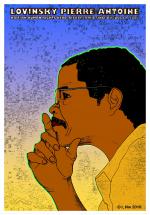 On August 12, 2007, Lovinsky Pierre-Antoine, a psychologist and an advocate for the poor, was kidnapped--one of the many egregious actions of the coup regime that overthrew the democratic government of Jean-Bertrand Aristide (who happens also to be a psychologist). On the 3rd anniversary of Pierre-Antoine's disappearance there were demonstrations in Haiti demanding "Where is Lovinsky Pierre-Antoine?" Peace psychologist Adrianne Aron participated in a demonstration in the San Francisco Bay Area with the Haiti Action Committee to stand in solidarity with Lovinsky, his family, the members of his organization, Fondasyon 30 Septanm (September 30th Foundation) and the people of Haiti. (portrait by artist Nia Imara) On August 12, 2007, Lovinsky Pierre-Antoine, a psychologist and an advocate for the poor, was kidnapped--one of the many egregious actions of the coup regime that overthrew the democratic government of Jean-Bertrand Aristide (who happens also to be a psychologist). On the 3rd anniversary of Pierre-Antoine's disappearance there were demonstrations in Haiti demanding "Where is Lovinsky Pierre-Antoine?" Peace psychologist Adrianne Aron participated in a demonstration in the San Francisco Bay Area with the Haiti Action Committee to stand in solidarity with Lovinsky, his family, the members of his organization, Fondasyon 30 Septanm (September 30th Foundation) and the people of Haiti. (portrait by artist Nia Imara)
International Work for Peace:
From Paul Kimmel
I have done evaluations of the USAID International Training Programs for the U.S.A. State Department (from 1969-1973.
I am currently a member of International Psychologists for Social Responsibility (PsySR) and will be one of the (US) PsySR representatives to their meetings in South Africa in 2012. In addition, I am chair of their Task Force on creating cultures of peace. In addition, I teach on-line for Saybrook University, a graduate school based in San Francisco that has many international students.
I am living in Panama and have made a few presentations to Panamanian groups on "Collateral Damage: The Psychological Consequences of America's War on Terrorism," the book that resulted from the APA's Task Force on Psychological Effects of Efforts to Prevent Terrorism. I chaired that Task Force for 3 years, one that resulted from my initiative when I was the Society's representative to the APA Council of Representatives in 2002.
I may be doing training in Panama helping visitors adjust to another culture, using the role-play techniques that I developed while working for the Business Council in International Understanding in DC.
Understanding the origins of mass violence, prevention and reconciliation: Workshops, trainings, seminars and educational radio projects promoting healing and reconciliation in Rwanda (and Burundi and the Congo)
Ervin Staub and Laurie Anne Pearlman
 This project, beginning in 1999 and still continuing, aims to promote healing and reconciliation in Rwanda, thereby to prevent new violence after the genocide as well as to help improve lives. It started with seminars/workshops in Rwanda, and then continued with educational radio programs, first in Rwanda, and then also in Burundi and the Congo. The approach lends itself not only to preventing new violence, but also to reducing hostility between groups before intense violence. In this overview I will focus on a central element that has been part of both components of the project, the trainings/seminars and educational radio dramas: Information about the influences that lead to mass violence--genocide or mass killing, about avenues to prevention (partly implied by the influences that lead to violence), and about healing and reconciliation. All these are important in the prevention of violence. This project, beginning in 1999 and still continuing, aims to promote healing and reconciliation in Rwanda, thereby to prevent new violence after the genocide as well as to help improve lives. It started with seminars/workshops in Rwanda, and then continued with educational radio programs, first in Rwanda, and then also in Burundi and the Congo. The approach lends itself not only to preventing new violence, but also to reducing hostility between groups before intense violence. In this overview I will focus on a central element that has been part of both components of the project, the trainings/seminars and educational radio dramas: Information about the influences that lead to mass violence--genocide or mass killing, about avenues to prevention (partly implied by the influences that lead to violence), and about healing and reconciliation. All these are important in the prevention of violence.
We used this information in settings where there was recent or still ongoing violence. In the workshops/seminars we guided the recipients to apply this information to their own situation. Our assessments indicated that listeners to the radio program did this on their own. Early evaluation has indicated that the information led to changes in attitudes, feelings and actions. The changes have presumably deepened in the course of the 7 years of broadcasting, in particular of extremely popular educational radio dramas.
Click here for photos and additional information.
In my joint roles as Chair of the World Economic Forum’s Global Agenda Council on Conflict Prevention and Director of the Harvard International Negotiation Program, I launched a program to develop the world’s first Global Curriculum on Conflict Management for senior-level policymakers and business leaders. The aim of the curriculum is to equip senior leadership with the tools to resolve regional and international conflicts through negotiation rather than violence. I led a team that developed the curriculum’s prescriptive approach, the 5x5 Framework, which draws heavily on emotions and identity theory. The curriculum includes firsthand negotiation accounts from Bertie Ahern, former Prime Minister of the Republic of Ireland; Morgan Tsvangirai, Prime Minister of Zimbabwe; Tony Blair, former Prime Minister of the United Kingdom; Ambassador Martyn Indyk of the Brookings Institute; and others. A first draft of the curriculum has been completed, and we are working to refine it in the months ahead. More information about our program can be found at www.internationalnegotiation.org.
Daniel L. Shapiro, Ph.D.
Director, Harvard International Negotiation Program
Faculty, Harvard Law School (PON) & Harvard Medical School (Psychology)
1563 Mass. Ave
Cambridge, MA 02138
From Dan Christie:
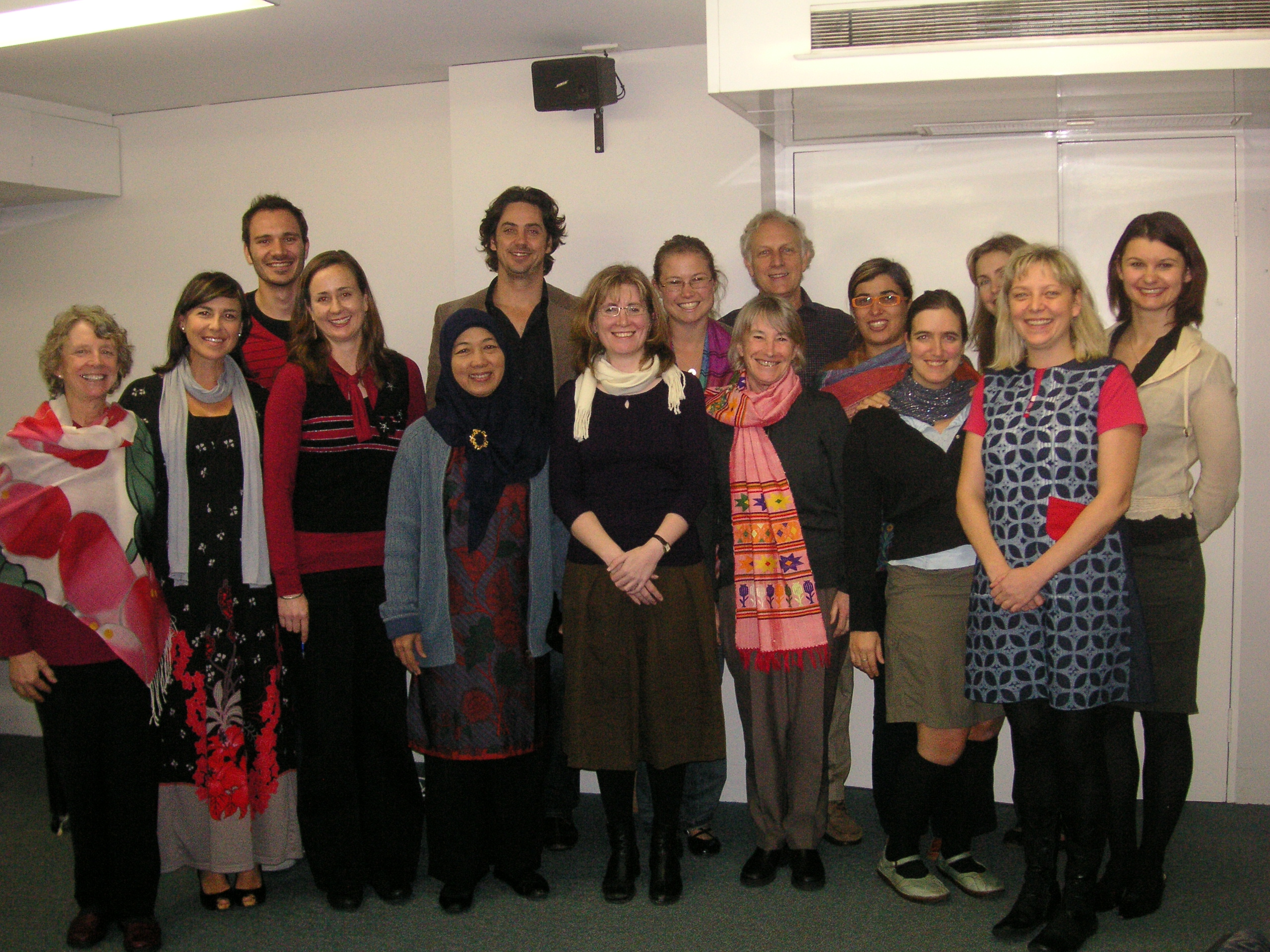 Peace workshop (two weeks) for graduate students, post-docs, and faculty at University of Queensland in Brisbane, Australia. Results were a book for the Peace Psychology Book Series entitled Peace Psychology in Australia (in press). Peace workshop (two weeks) for graduate students, post-docs, and faculty at University of Queensland in Brisbane, Australia. Results were a book for the Peace Psychology Book Series entitled Peace Psychology in Australia (in press).
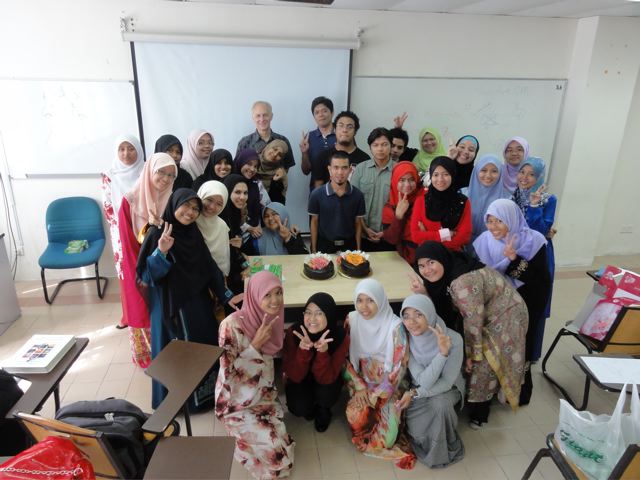
Workshop at the International Islamic University in Malaysia. I worked with colleagues there to establish a master's program in Peace and Conflict Studies and part of the curriculum is a two-course sequence in Peace Psychology. Students were also involved and attached are pictures from my political psychology students.
Duc Viet Nguyen, Ph.D. left Vietnam by boat to seek asylum, arriving in the USA on Feb. 19, 1979. Prior to this he was providing social services for boat people in a Malaysian Refugee Camp. He now is Vietnamese American, a former socio-political refugee. Regarding his service work on behalf of others and peace, he was employed for 24 years by the State of California as a Rehabilitation Professional. His services included socio-psychological counseling for clients with physical and or mental limitations. Many of his clients were survivors of war and those with Post-traumatic Stress related to the Vietnam War. He currently engages in research and writes papers to further peace. He is a peace psychologist, a recipient of a Fulbright Award, and works for the Delegate of Citizen Ambassador Program. He has written speeches, met with scholars and students from Vietnam, Jordan, Japan, Brazil, Morocco, Laos and Cambodia to further peace through the People to People International (PTPI). PTPI Activities are Peace Through Understanding. Working with this organization since 2006, Duc Viet Nguyen describes how much he has learned about conflict brought about because people simply do not understand each other.
Photography as Healing: September 11 Through the Lens of the Viewers
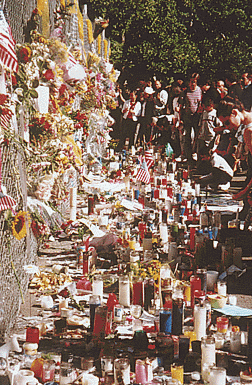 By By
Iris Fodor
e-mail:
The events of September 11 and the aftermath were probably the most photographed traumatic event in history. When the planes hit the World Trade Center in New York on the morning of September 11, causing the towers to burn, smoke, and suddenly collapse, there were probably more people close to the disaster zone and direct eyewitnesses than any other similar event in history. The twin towers, the tallest buildings in New York, were visible from almost every street in lower Manhattan, from most buildings that faced south, and clearly not far from the waterfronts of Brooklyn, Queens, Staten Island and New Jersey. Tens of thousands of people were in the buildings or close by on the streets and forced to flee. Thousands more were buried in the rubble and are still missing. Click here for full information.
ENDGAME
Perhaps you’re dead or have not heard
that US culture is absurd.
Our nation teeters on the brink
of self-destruction, and I think
for our redemption it’s too late
as we rush madly toward our fate.
We squander treasure on dumb wars
while patriotic madness soars.
We all have got PTSD
and terminal insanity.
Now we are being forced to learn:
All empires crash, and it’s our turn.
Tom Greening, Member/Poet
From Hal Bertilson
Practice
The Society for the Study of Peace, Conflict, and Violence: Peace Psychology has compiled the following reports, resources, and information regarding current and past initiatives by Division members.
A Sample of initiatives and Activities
- Projects of Working Group Spirituality and Humanitarian Practices
- The International Day of Peace (9/21/11) and contributions of Peace Psychologists to the International Day of Peace (9/21/11), by Julie Meranze Levitt, PhD.
- 9/11 Plus Ten: New York City in the Aftermath of September 11th , by Susan Opotow, PhD.
- Culture of peace websites: http://cpnn-world.org and http://www.culture-of-peace.info, by David Adams.
- The first annual UnSpoken human rights forum of 2011, by Pauline (Polly) Ginsberg.
- The Center for Research on Peace Education, 2009,by Gavriel Salomon.
- Corann Okorodudu's U.N. Work.
- US Peace Memorial Foundation (Founded by Michael D. Knox, Ph.D.)
- International Work for Peace by Paul Kimmel.
- Workshops, trainings, seminars and educational radio projects promoting healing and reconciliation in Rwanda (and Burundi and the Congo), by Ervin Staub and Laurie Anne Pearlman.
- Photography as Healing: September 11 Through the Lens of the Viewers, by Iris Fodor.
- World Economic Forum's Global Agenda Council on Conflict Prevention and Director of the Harvard International Negotiation Program, by Daniel L. Shapiro, Ph.D.
- Rehabilitation work by Duc Viet Nguyen, Ph.D.
- Peace Workshops by Dan Christie, Phd.
- Anti-war work by Hal Bertilson.
- Poetry writing by Tom Greening.
Projects of the Working Group Spirituality and Humanitarian Practices
- Humanitarian and Sustainable Initiative in Haiti and Detroit.
- International and National Humanitarian Interventions/Paradigms.
- Wanted: Psychologists engaged in Humanitarian endeavors.
- Working Group Service Initiatives.
- The Conscientious Objection Project.
- Building Interfaith Harmony through Dialogue.
Click here for information on each of these projects.
The International Day of Peace (9/21/11) and contributions of Peace Psychologists to the International Day of Peace (9/21/11)
It is with great appreciation of the International Day of Peace that we as peace psychologists contribute to the International Day of Peace. Here we share what our members do in building peaceful communities and in conflict resolution. Our Society's peace psychologists are dedicated to exploring multiple directions in scholarship, research, practice, and public policy that will make peaceful societies with social justice become a reality. Please find below examples of our members' activities associated with peacebuilding. Our members work and volunteer in many venues, providing parts of the complicated answers related to transforming communities from the largest: national and international groups, to the smallest: the family and individual. Some of our members live in the USA, some live and work in many other parts of the world, and some commute between the USA and other locations. Dialoguing among peoples, conflict resolution, rebuilding in community partnerships with communities affected by natural disaster and ethnopolitical warfare, and scholarship, research and policy-building associated with vital issues concerning family, community, nation and nations, are a few examples of what we do. Our psychologists work in cities, towns and rural locations as psychologists and private citizens and contribute on many levels to transforming individuals and societies.
Please read through the submissions that are now on the site. The expectation is that we will increase the numbers of entries from our members on this website as this week and month go on. Remember, we ask for a moment of silence at noon wherever you are in remembrance of where we need to go to make this a better world for all without war.
Join us in the celebration of peace worldwide by sending in descriptions of your experiences as psychologists in our Society who help build peace. Please write me at .
Please remember that APA has Non-Governmental Organization (NGO) Status in the United Nations.
Julie Meranze Levitt, PhD, President, 2011, the Society for the Study of Peace, Conflict, and Violence: Peace Psychology Division of the American Psychological Association
Dear Friends,
The greatly increased culture of war in the United States makes it more important than ever to work for a culture of peace. For that reason I continue to improve the following two culture of peace websites
http://cpnn-world.org, devoted to the further development of a global news network for a culture of peace, has evolved considerably in recent years. We are now receiving and posting almost one article per day from around the world in English, French and Spanish.
http://www.culture-of-peace.info, devoted to the scientific study of a culture of peace, hold a great deal of information. Of particular importance is a brief history of the culture of peace, as well as on-line books on psychology for peace activists, an extensive history of the culture of war and a strategy for the transition from the culture of war to a culture of peace.
Also on this website, The Aggression Systems has been completed as an on-line book with sections on human aggression, evolution of aggression, brain mechanisms of aggression and dynamics of aggression.
I look forward to hearing from you,
Peace,
David Adams
I would like to offer the following as well as let you know about an upcoming event on the aftermath of 9/11 in New York City. would like to offer the following as well as let you know about an upcoming event on the aftermath of 9/11 in New York City.
Please come if you are in the NYC area and please let you colleagues know about it via the attached schedule and poster. The event consists of three sessions, is free, and open to all. I planned this multidisciplinary event in collaboration with colleagues from within and outside the academy.
Best regards,
Susan Opotow
Editor, Peace and Conflict
|
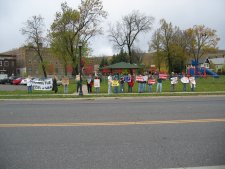 |
|
|
This is an anti-war protest. I’m not in the picture because I took the picture. Duluth, MN. |
|
|
|
|
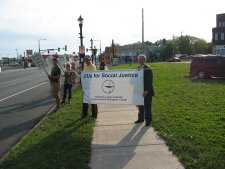 |
|
|
In this picture I am participating in a Northland Anti-War Coalition (NAWC) protest against the war in Iraq. The coalition includes labor groups, Veterans for Peace, Grandmothers for Peace, Unitarian Universalist Social Justice Committee, and others. I am holding the UUs for Social Justice with another Unitarian Universalist. |
|
|
|
|
 |
|
|
I am coordinator of the Amnesty International Local Group #642. This is a picture I took of our protest of Dick Cheney’s new book. |
|
|

